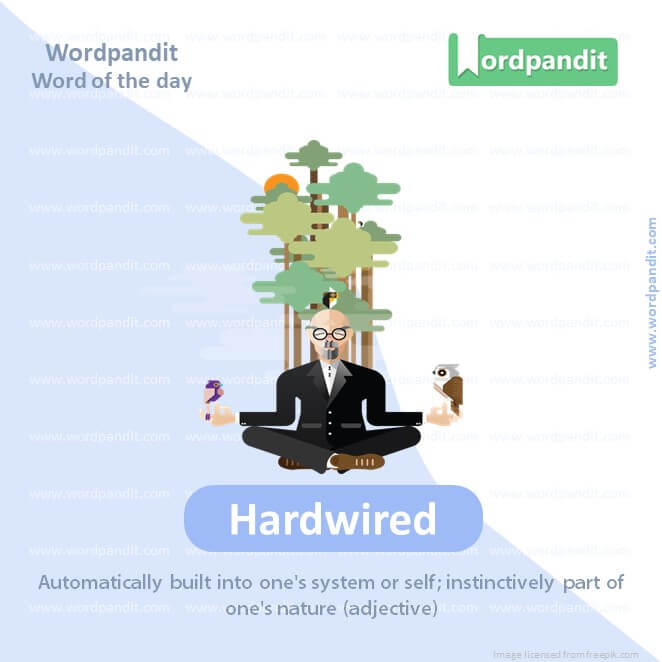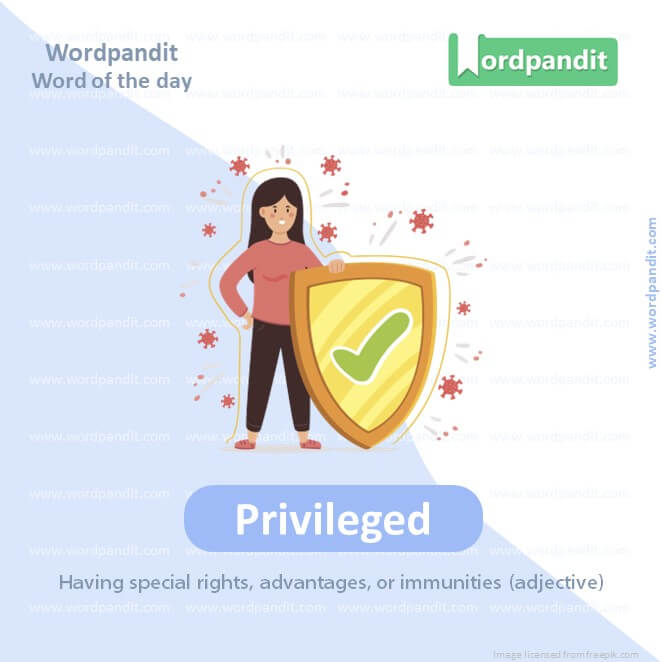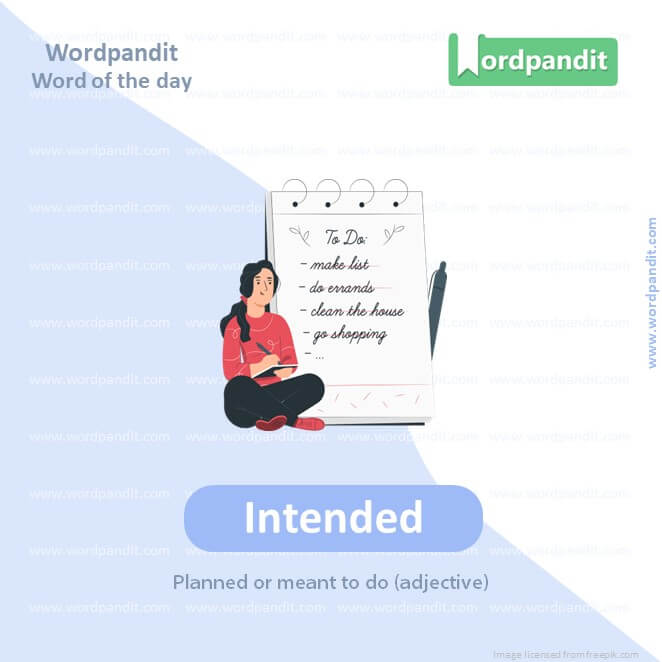Daily Vocabulary Words: List of Daily Used Words in Leading International Newspapers
Hi there. Welcome to this special section @ Wordpandit.
Our endeavour here is very simple: to highlight important daily vocabulary words, which you would come across in leading newspapers in the country. We have included the following newspapers in our selection:
• The New York Times
• The Washington Post
• Scientific American
• BBC
• The Guardian
• Psychology Today
• Wall Street Journal
• The Economist
We are putting in extensive work for developing your vocabulary. All you have got to do is be regular with this section and check out this post on a daily basis. This is your repository of words that are commonly used and essentially, we are posting a list of daily used words. Hence, this has significant practical application as it teaches you words that are used commonly in leading publications mentioned above.
Visit the website daily to learn words from leading international newspapers.

WORD-1: Hardwired
CONTEXT: After all, “the firm” is hardwired for continuity. Seamless adaptation is what the monarchy does.
SOURCE: The Guardian
EXPLANATORY PARAGRAPH: Imagine your brain is like a computer with certain programs it always runs, like knowing how to breathe without thinking about it. This is because your brain is “hardwired” to do these things, meaning it’s built in a way to automatically know how to do them without learning.
MEANING: Automatically built into one’s system or self; instinctively part of one’s nature (adjective).
PRONUNCIATION: HARD-wy-erd
SYNONYMS: Ingrained, Innate, Inborn, Instinctual, Inherent, Natural
USAGE EXAMPLES:
1. Humans are hardwired to seek companionship.
2. The response to danger seems to be hardwired in most animals.
3. She has a hardwired sense of direction.
4. Certain behaviors are hardwired into the brain from birth.

WORD-2: Privileged
CONTEXT: It has been doing it again this week, albeit wrapped in the privileged language in which going back to work becomes the “resumption of duties”. Few politicians have any interest in questioning any aspect of this.
SOURCE: The Guardian
EXPLANATORY PARAGRAPH: Imagine having a special pass at an amusement park that lets you skip all the lines and ride any ride you want without waiting. Being privileged is like having this special pass in different parts of life, giving you special rights or advantages that not everyone has.
MEANING: Having special rights, advantages, or immunities (adjective).
PRONUNCIATION: PRIV-i-lejd
SYNONYMS: Favored, Entitled, Fortunate, Blessed, Elite, Advantaged
USAGE EXAMPLES:
1. She comes from a privileged background, with access to the best education.
2. The privileged few have access to these exclusive clubs.
3. Being a citizen of this country is a privileged status.
4. He felt privileged to be part of the groundbreaking research.

WORD-3: Albeit
CONTEXT: It has been doing it again this week, albeit wrapped in the privileged language in which going back to work becomes the “resumption of duties”. Few politicians have any interest in questioning any aspect of this.
SOURCE: The Guardian
EXPLANATORY PARAGRAPH: Think of when you’re telling a story and you want to add something that changes it a little, like saying, “I had a great day at the beach, albeit a bit too sunny.” “Albeit” is a fancy word used to introduce a fact that makes the first part less strong or slightly different. It’s like saying “but” or “even though.”
MEANING: used to introduce a phrase that contrasts with what has just been said; equivalent to “although” (conjunction).
PRONUNCIATION: awl-BEE-it
SYNONYMS: Although, Though, Even if, However, Notwithstanding, Despite
USAGE EXAMPLES:
1. The trip was enjoyable, albeit exhausting.
2. He accepted the job, albeit with some hesitation.
3. The car is quite old, albeit reliable.
4. It was a small, albeit significant, victory.

WORD-4: Intended
CONTEXT: As a result, the national conversation in September 2022 intended mainly to look back to the past, not forward to the future.
SOURCE: The Guardian
EXPLANATORY PARAGRAPH: Imagine taking care of a plant by watering it and making sure it gets enough sunlight. This is like “tending” to something, where you look after it, care for it, or make sure it’s doing okay. It’s doing what you can to help something or someone grow or stay well.
MEANING: Planned or meant to do (adjective).
PRONUNCIATION: TEN-ded
SYNONYMS: Cared for, Looked after, Maintained, Managed, Nurtured, Oversaw
USAGE EXAMPLES:
1. She intended her garden with great care.
2. He intended to be quiet in large groups.
3. They intended the wounded after the accident.
4. The library was well intended and organized.
WORD-5: Disconcertingly
CONTEXT: It whispers insistently to us that one day – still perhaps years off, but perhaps instead disconcertingly soon – both the monarchy and its relationship with the nation will have to evolve again.
SOURCE: The Guardian
EXPLANATORY PARAGRAPH: Imagine walking into a room and suddenly finding everyone dressed like clowns when you didn’t expect it. This might make you feel weird or uncomfortable. That feeling is what “disconcertingly” means. It describes something that makes you feel unsettled or surprised in a way that’s hard to feel comfortable with.
MEANING: In a manner that causes discomfort or unease (adverb).
PRONUNCIATION: dis-kuhn-SURT-ing-lee
SYNONYMS: Disturbingly, Unsettlingly, Troublingly, Confusingly, Alarmingly, Bewilderingly
USAGE EXAMPLES:
1. The silence was disconcertingly loud.
2. He smiled disconcertingly during the interrogation.
3. The evidence was disconcertingly clear.
4. Her calmness was disconcertingly out of place.
WORD-6: Evolve
CONTEXT: It whispers insistently to us that one day – still perhaps years off, but perhaps instead disconcertingly soon – both the monarchy and its relationship with the nation will have to evolve again.
SOURCE: The Guardian
EXPLANATORY PARAGRAPH: Think about how a tiny caterpillar changes into a beautiful butterfly. This change didn’t happen all at once; it took time and happened in steps. This process of changing slowly over time is called evolving. It’s like growing and learning new things so you can become the best version of yourself.
MEANING: Develop gradually, especially from a simple to a more complex form (verb).
PRONUNCIATION: ih-VOLV
SYNONYMS: Develop, Progress, Advance, Mature, Transform, Adapt
USAGE EXAMPLES:
1. The company has evolved over the years into a multinational corporation.
2. The project evolved from a small idea into a major initiative.
3. Animals have evolved to adapt to their environments.
4. His style of music has evolved significantly since his first album.
WORD-7: Convulsed
CONTEXT: But then something very encouraging happened. The revelation that members of the AfD attended a meeting with neo-Nazis and other extremists in Potsdam last November convulsed the nation.
SOURCE: The Guardian
EXPLANATORY PARAGRAPH: Imagine your body suddenly shaking all over without you trying to move it, like when you’re really cold or laughing so hard you can’t stop. This shaking movement is what “convulsed” means. It can happen when something is really funny, really exciting, or sometimes even scary.
MEANING: Suffer violent involuntary contraction of the muscles, producing contortion of the body or limbs (verb).
PRONUNCIATION: kuhn-VULST
SYNONYMS: Shook, Trembled, Quaked, Shuddered, Twitched, Jerked
USAGE EXAMPLES:
1. The audience was convulsed with laughter at the comedian’s jokes.
2. The patient convulsed due to the high fever.
3. The city was convulsed by protests.
4. The news convulsed the community, causing widespread shock.
WORD-8: Milieus
CONTEXT: What was new, and shocking to many, was the convergence of different milieus involved, from extremist activists and figures affiliated with the political centre right to businesspeople, and the brazen self-confidence they displayed by forming a concrete plan.
SOURCE: The Guardian
EXPLANATORY PARAGRAPH: Imagine all the places you like to go, the people you see, and the activities you do all mixed together like ingredients in a soup. This mix of places, people, and things around you that affects how you think and feel is called your “milieus.” It’s like the special setting or background of your life story.
MEANING: A person’s social environment (noun).
PRONUNCIATION: mil-YOOZ
SYNONYMS: Environments, Settings, Backgrounds, Contexts, Surroundings, Spheres
USAGE EXAMPLES:
1. He grew up in a creative milieu that nurtured his talents.
2. The artist was influenced by the vibrant cultural milieus of Paris.
3. The novel depicts the contrasting milieus of the rich and the poor.
4. She felt out of place in the new and unfamiliar milieu.

WORD-9: Convergence
CONTEXT: What was new, and shocking to many, was the convergence of different milieus involved, from extremist activists and figures affiliated with the political centre right to businesspeople, and the brazen self-confidence they displayed by forming a concrete plan.
SOURCE: The Guardian
EXPLANATORY PARAGRAPH: Imagine two rivers flowing towards each other and then joining to become one big river. This coming together is called convergence. It’s like when you and your friend walk from different places and meet at the playground. You both converged, or came together, at the same spot.
MEANING: The process or state of coming together from different directions to eventually meet (noun).
PRONUNCIATION: kuhn-VUR-jens
SYNONYMS: Meeting, Union, Junction, Merger, Fusion, Coalescence
USAGE EXAMPLES:
1. The convergence of technology and education is transforming how we learn.
2. The conference facilitated the convergence of ideas from various fields.
3. The storm resulted from the convergence of two weather systems.
4. The project aims to achieve a convergence of art and science.
WORD-10: Brazen
CONTEXT: What was new, and shocking to many, was the convergence of different milieus involved, from extremist activists and figures affiliated with the political centre right to businesspeople, and the brazen self-confidence they displayed by forming a concrete plan.
SOURCE: The Guardian
EXPLANATORY PARAGRAPH: Imagine someone doing something they know is wrong, like taking a cookie from the jar before dinner, but instead of hiding it, they do it openly without trying to hide and don’t seem to feel sorry. Being brazen is like this: acting boldly and without shame, even if it’s not the right thing to do.
MEANING: Bold and without shame; acting or done in a very open and shocking way without any embarrassment or remorse (adjective).
PRONUNCIATION: BRAY-zuhn
SYNONYMS: Bold, Shameless, Audacious, Impudent, Unabashed, Defiant
USAGE EXAMPLES:
1. The thief was brazen enough to steal in broad daylight.
2. She made a brazen admission of guilt.
3. His brazen behavior in class shocked the teachers.
4. The company’s brazen disregard for the rules led to a scandal.
vocabulary kit
The gift of language lies not just in the syntax or grammar but majorly thrives on a rich repository of words- the vocabulary. Hence, the importance of vocabulary learning techniques is monumental in language acquisition. These techniques act as catalysts, accelerating the process of language learning, and seamlessly integrating new words into our daily discourse.
The first vital point in mastering vocabulary learning techniques is understanding its purpose. These strategies not just help one in memorizing an array of new words, but also assist in using them appropriately in different contexts. It broadens communication skills and creates a roadmap to better expression of thoughts and ideas.
One of the most commonly employed and impactful vocabulary learning techniques is the usage of flashcards. Flashcards offer visual stimulus which aids in imprinting the word and its meaning more effectively in our minds. Regular practice with flashcards helps cultivate language fluency over time.
Another crucial technique is to learn words in context. This simply means learning a word by associating it with a particular sentence, paragraph or story. This context-based approach remarkably boosts our understanding of the nuanced use of vocabulary in varying scenarios.
Moreover, incorporating digital tools or language learning apps can be an effective method in our vocabulary learning techniques kit. These platforms provide interactive learning experiences with gamified vocabulary exercises, making the learning process greatly enjoyable and engaging.
Finally, regular revision is a cornerstone of these vocabulary learning techniques. Repeated revisions ensure that the learned words do not slip away and rather, become firmly anchored in our memory.
Indeed, vocabulary learning techniques are much more than mere memorization strategies. They nurture linguistic competence, expanding expressive capabilities and fostering effective communication. Hence, investing time in understanding and practicing these vocabulary learning techniques can pay rich dividends in enhancing one’s language proficiency.







